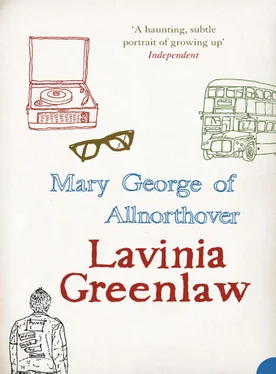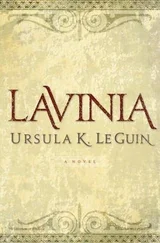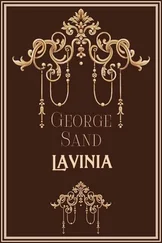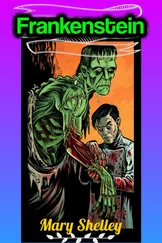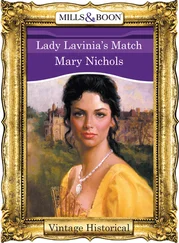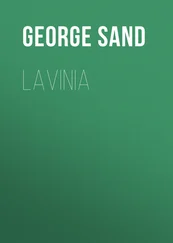Mary pulled a tobacco pouch and papers from her bag. She slowly teased out the tobacco, laid it on the paper, creased the edge with her nails and rolled her cigarette. She ran the tip of her tongue along the glued edge and sealed it. Her hands did not shake. Julie had noticed that the children around her were listening eagerly now. ‘Must have felt bad in the end … couldn’t face anyone in the end, could he? Face you, does he?’ Mary lit her roll-up and closed her eyes.
Julie didn’t speak again before she got off at the roundabout on the edge of town. Since leaving school a year before, she had worked at the Amber Grill, the restaurant in the Malibu Motel, built on the site of Barry Spence’s old transport café. The eldest Spence brother, Barry had made a deal so mysterious and successful that his greasy spoon with its unofficial bunkhouse was swept away overnight and replaced by a stucco-fronted restaurant with a reception area, and a string of pebble-dashed motel rooms. He had a tarmacked car park and a sign with neon palm trees at the entrance to his own sliproad. It was said that Barry’s success was due to secrets. The old Amber Café had been a traditional meeting place for those with unofficial business, who thought they would be alone among travellers and strangers. With a sharp eye and careful organisation, Barry had averted many unfortunate meetings. There were councillors, property developers, lawyers, builders and bankers, husbands and wives who were grateful to him.
Barry loved the constant stream of one-night visitors, the late-night traffic turning off the London road, bringing in people who travelled for a living and saw the world. He thought of England as a wide open space, criss-crossed by endless motorways and punctuated by places like the Malibu Motel. He thought of America. Barry mugged up on cocktails, turned the Amber Grill into an American diner and hired burly blondes like Julie Lacey to serve hamburgers topped with pineapple rings to salesmen and lorry-drivers who wanted bacon and eggs instead.
The sixth-form common room of Camptown High was the last in a row of prefabs that no one had ever pretended would be temporary. The pupils were allowed a kettle, a record player and to wear their own clothes. Smoking, although against the rules, was tolerated as long as it was unseen. For this reason, the windows were kept shut and the blinds drawn. There were a dozen low armchairs, arranged in three groups, and a row of desks that were empty and unused. The walls around each group of chairs were covered in posters: psychedelic, sporting and political. Billy was asleep, stretched across two chairs beneath a lurid album cover of chasms and goblins.
Mary walked over and parted the long hair that covered his face. ‘Where were you this morning?’
He stretched and sat up, not smiling. ‘And where were you on Saturday morning?’
Mary sighed. ‘I went home.’
‘Without me.’
‘You had already gone!’
‘I got the last train, like we’d planned to.’
‘You didn’t say goodbye.’
‘You were busy.’
Mary stood up, her fists clenched. She and Billy had gone to the party in Crouchness together. She didn’t remember seeing much of him there, or noticing when he left.
Billy fiddled with the beads round his neck. ‘I slept out last night and walked it.’
‘The state of your feet. You’re turning into a satyr!’
Billy smiled and flexed his toes. ‘Perhaps I am at that.’ He hadn’t worn shoes for weeks and carried a pair of flip-flops to put on if a teacher approached.
‘And you stink of patchouli oil, Billy.’
‘And fresh air …’
‘Not even fresh air smells of fresh air any more.’ Mary had been in the room for five minutes and its atmosphere, soupy and stagnant, was making her sleepy as well. She curled up in another chair and closed her eyes.
When Mary’s father, the architect Matthew George, decided to go into partnership with the builder Christie Hepple, undertaking local conversions, he bought the old chapel.
The Chapel had been converted from a grain store by the local Baptists. They had replaced the roof, laid a stone floor, and whitewashed the brick and beams. Then their minister, the Reverend Simon Touch, had inherited a gloomy house on the High Street and had built a new chapel in its cavernous basement, complete with an immersion pool. Mary had once gone back there after school with his daughter Hilary, who had promised that she could dip her fingers in the tank. Hilary said people fell into it backwards for God ‘so the water runs up their noses.’ The water in the murky tank looked quite solid and Mary had wondered how anyone managed to sink into it. Whose hands helped them and how did they surface again?
The Baptists had put in a window above their altar, a large triangle of plain glass flush with the roof, under which Matthew worked on a raised platform he’d built along the centre of the building. There were rough stairs at the far end. Mary had liked to creep up and tiptoe along the aisle between the shelves of books, files and papers, like a library she said, to the end where the platform broadened to the width of the Chapel, level with the foot of the window, and Matthew sat perched on his spindly, rotating stool at his slanted drawing board, pencilling in tiny elegant numerals and angles. Mary would stand behind him at the window, recording her height on each visit by breathing on the glass.
On the ground floor, Christie had kept his tools and machinery. He also had a desk, a trestle table, pushed against one of the small windows that were shuttered and set deep in the wall. Mary would walk solemnly across this space, holding herself straight but looking quickly from side to side at all the sharp edges, the twists, spirals, points and planes.
Christie let Tom go in ahead of him. ‘Don’t be troubled if it’s not right.’ Even though light pushed through the windows, the interior of the Chapel was cool. Tom set down his rucksack and considered the swept floor, bare shelves, trestle table and stool. ‘Simple,’ he smiled.
‘It is that.’ Christie bustled past him to the back where there was a sink, cupboards and a Baby Belling two-ring cooker. Matthew had installed all this. He had stayed overnight there sometimes, more so towards the end, locking the door against Stella, whom Christie had found one morning, half asleep on the grass outside.
‘Cup of tea?’ Christie was busy unpacking carrier bags and filling the cupboards with tins of soup, beans and spaghetti; packets of biscuits, sugar, custard powder, dried milk and instant mash; bottles of tomato ketchup, malt vinegar and HP Sauce. Tom had hardly eaten anything, hardly slept either, in the two weeks that he’d been back. ‘I’ll come again first thing. You’re to sort out your benefit at the Post Office and I’ll fetch some more groceries.’ He took as long as he could to put things away, watching over the kettle as it boiled and then leaving the tea to brew till it was bitter and lukewarm, and the granules of dried milk floated greasily on its surface. He waited till Tom was nearby before handing him his mug, almost without turning round.
Tom carried his mug and rucksack carefully up the open staircase to where Christie had made up a mattress under the big window. Not having any curtains that would fit, he had taped blue sugar-paper over the glass. For Tom, this marine light made the place even cooler. By laying out his clothes, books, papers, pens and shoes across the floor and along the nearest shelves, he created a rectangle the same size as the space he had lived in on the hospital ward, the same as half the room he’d later shared in the hostel – four by eight paces. June’s room had been the wrong shape.
Christie understood that Tom needed to be somewhere familiar. He couldn’t be at ease in the new house but needed to be in the village. The Chapel was ideal, almost off on its own, nearer than anywhere else to the Dip, but not within sight of the water. Since Matthew had left, Christie had worked for people who had their own offices and drew up their own plans. He hadn’t needed the Chapel for anything more than a store. It only took a morning to sort out his tools and paints, transfer them to his garden shed and clean up the outhouse.
Читать дальше
